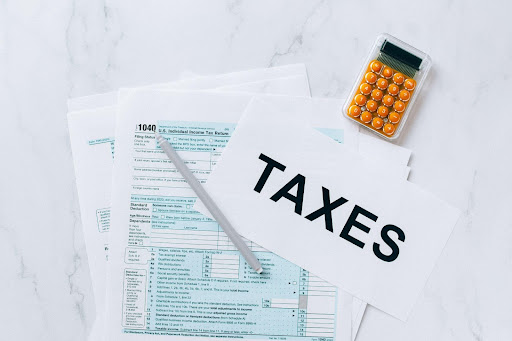Contents
Being an expat in a country like The Netherlands can be overwhelming at times. Just when you think you’ve figured out one thing, like learning Dutch, for example, a whole new obstacle pops up. One such obstacle that not many people think of before/after relocating to The Netherlands, is tax.
Anyone who is employed in The Netherlands attains resident taxpayer status. This guide will tell you all you need to know on paying tax in your new country.
Income tax in The Netherlands
Dutch income tax is split into three “boxes”, each containing their own tax rate. There are three income categories that you will pay tax on:
Box 1: Income from owned property and employment, which includes wages and pension, as well as income from renting out your property.
Box 2: Income gained from substantial interest, such as gains on shares or dividends.
Box 3: Income from savings and investments, such as stocks and shares.
Other types of tax in The Netherlands
Apart from having to pay income tax, you might also be subject to indirect taxes such as Belasting Toegevoegde Waarde or BTW (the equivalent of VAT). The following BTW rates apply:
- General tariff (21% VAT rate) is applied to the majority of products and services.
- Low tariff (9% VAT rate) is applied to common products and services, including food, drinks and medicine, as well as books and online publishings.
- 0% VAT rate is applied to services that relate to cross-border transactions, which are exempt from BTW.
Furthermore, if you own any property in The Netherlands, you are subject to pay water tax, which is used by the government to provide clean water and flood protection (Remember, the country is very flat and below sea level, which means that flooding is a very real danger.) In addition to this, each municipality or “gemeente” may require you to pay other taxes that cover services such as waste removal and street cleaning.
How do I pay taxes?
Your income tax should be deducted from your salary automatically, so there is no need to make physical payments to the government. However, you still need to file a tax return called a “belastingaangifte” each year. This typically happens between the 1st of March and the 1st of May. If you miss the deadline to submit your tax return, you will receive a fine. The entire tax return process is very simple to do and is done online, so there really is no excuse for you to miss the deadline.
You will only need your personal information, such as your BSN or “Burger Service Nummer” and DigiD account to fill in your tax return. Once you log in, you simply fill in the relevant form – either the C-, P-, or M-Form – that applies to your tax situation (don’t worry, everything is explained throughout the process!) After you completed the relevant form, you should receive a provisional assessment to complete. You can then either pay the necessary amount or receive the tax refund based on your provisional assessment. The “Belastingsdienst” will then review this information. Should there be any differences between the final assessment and your provisional assessment, you will either have to pay the difference or will receive the refund accordingly.
Understanding tax brackets
Unfortunately, tax brackets in The Netherlands are not so straightforward as you might be used to. To give yourself more or less of an idea of what you can expect to pay in taxes, the tax rate for residents who earn less than €69,399 a year will have a tax rate of 37,07%. Yearly incomes that exceed that amount can expect to have an income tax rate of about 49,50%.
Another factor that will affect your tax paying status is the residency status you hold in The Netherlands. The tax categories are:
- Resident taxpayers (when you live and work in The Netherlands)
- Non-resident taxpayers (when you have taxable income from The Netherlands, but live abroad)
- Qualifying non-resident taxpayers (residents of EU/EEA states, Switzerland or certain Dutch municipalities who also pay 90% of their income tax in The Netherlands can be awarded with the same tax privileges as resident taxpayers.
If you are a highly skilled migrant who received a job offer while still living outside of The Netherlands, you can qualify for the 30% ruling that means you don’t have to pay tax on 30% of your income.
Conclusion
Although the topics of tax in The Netherlands might seem overwhelming at the moment, it does not have to be. The Dutch government has a lot of helpful resources that explain the topic very well which, together with this guide, will help you to understand taxes in no time. Of course, if you’re still unsure about it all, you could always contact a professional, such as a financial expert or tax consultant. Once you get the hang of it, you’ll see that paying tax in The Netherlands (however high the tax rate might be) is actually quite simple.




